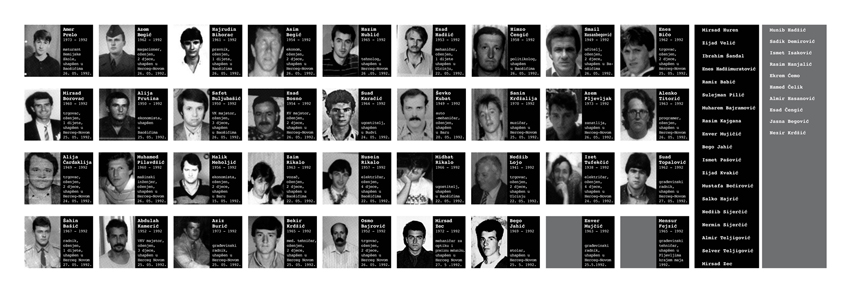
2/3/2018 WORLD PRESS FREEDOM DAY IN MONTENEGRO
03/05/2018
22/5/2018 THE EUROPEAN COURT OF HUMAN RIGHTS AND DEPORTATION OF REFUGEES IN MONTENEGRO
23/05/20189/5/2018 WHY WAS JOURNALIST OLIVERA LAKIĆ SHOT AT IN MONTENEGRO?

Olivera Lakic, Vijesti journalist, has been shot at last night at the very same place she was beaten up in March 2012, in front of her apartment building where she lives with her family in Podgorica, Montenegro.
This latest attack seems like the final warning before her assassination.
The earlier attack on Olivera along with several threats she received were not ultimately clarified and punished, nor was the main theme of her investigative work ever investigated – the illegal production and smuggling of cigarettes in Montenegro. One of her latest texts was headlined ”Is the smuggling of cigarettes still state business?”.
On 15 September 2016 Human Rights Action published a report ”Threats and attack on the journalist Olivera Lakic” on unsuccessful prosecution of attack and threats she received during 2011-2014. All of us in HRA feel defeated because we were not successful at preventing this latest attack at her nor that the topic she wrote about be thoroughly investigated.
We are now calling upon representatives of the European Union not to welcome a state where illegal production and smuggling of cigarets is not effectively investigated and where journalists who ask questions about it are attacked and threatened.
We hereby repeat the conclusion of our report from 2016 and call upon you kindly to read it in full:
”Due to a series of texts on illegal production and smuggling of cigarettes, which were brought into connection with the Police Directorate and NSA officers, journalist Olivera Lakić became the victim of a series of threats and a physical attack. Prosecution of these attacks was accompanied by numerous controversies and influence of senior civil servants. Thus, one person attempted to impede the investigation by giving false testimony, Police Chief stated that the journalist’s attacker was convicted because the police had planted evidence, Head of Budva Police Criminal Investigation Department tried to influence the prosecutor to discontinue proceedings against his colleague for threating journalist Lakić, and the Supreme Court President was particularly interested in that case.
The State Prosecutor’s Office chose the middle way – striving to prosecute all executors of threats and the attack on the journalist, but not to identify a person that had ordered these threats and attack, not to thoroughly investigate the illegal production and smuggling of cigarettes that Lakić wrote about and that made her a target, nor to investigate the disappearance of evidence in this regard. The journalist’s efforts and sacrifice in the interest of citizens have thus remained futile, with the epilogue of this case being the fact that the rule of law in Montenegro has not been ensured, and that the public continues to lose its confidence in the willingness of the Police Directorate and State Prosecutor’s Office to ensure it.
In the said case the courts punished with minimal sentences only one person who threatened Lakić and her attacker. Two police officers were acquitted – one accused of making threats, and the other accused of illegal influence on the public prosecutor to suspend the prosecution of the former. Both acquittals were based on controversial interpretation of the facts and legislation. Epilogue of the second case is that the police officer did not rank high enough to be able to exercise unlawful influence on the prosecutor, although the law imposes no such requirement. The fact that the police officer accused of threatening the journalist was very close to Chief of the Police and that the Supreme Court President expressed her interest in the proceedings against him supports the suspicion that in both cases the judges were not impartial. In addition, the court found that the person who had falsely accused himself of threatening the journalist could not be held criminally responsible, in the case of threats for which a police officer was prosecuted afterwards. It was never exposed why he had tried to mislead the investigation. Ultimately, the court also suspended the proceedings against Lakić attackers’ friends who threatened her last, finding that there was insufficient suspicion that they had committed the crime of Endangering Safety.
In conclusion, the courts have failed to see all these procedures in the context that deserved to be taken into consideration with utmost concern – that the journalist Olivera Lakić had been the victim of continuous threats and even physical assault with the intention of intimidating and discouraging her to continue her research into the illegal production and smuggling of cigarettes in Montenegro – a business that former and current public officials at the Police Directorate and NSA are most likely linked to, according to unconvincing response of all competent state authorities in the case of assault on the journalist. For threats and attack on journalist Lakić only two persons, who are not influential and against whom the evidence was fairly apparent, received light sentences, while it has been ensured that the investigation does not reach the organizer of the attack.
Summary of the report has been published in the HRA publication ”Prosecution of the attacks on journalists in Montenegro”, page 62.







 English
English